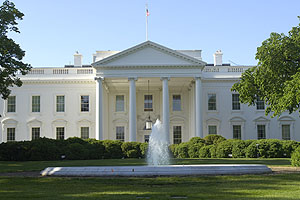Government & Politics
Three Election Questions for History Professor Allan Lichtman AU history professor correctly predicted Trump win

American University’s Distinguished Professor of History Allan Lichtman made national headlines last September when he predicted a Donald Trump presidential win.
It wasn’t just a lucky guess, and it wasn’t based on poll numbers. Instead, Lichtman applied a tried-and-true presidential election prediction formula that he developed with renowned mathematician Vladimir Keilis-Borok in 1981. It involves 13 true/false statements (keys), which have correctly predicted every presidential election outcome since Ronald Reagan’s 1984 re-election.
Lichtman describes his keys in depth in his book Predicting the Next President: The Keys to the White House 2016. They are simple to use: if 8 or more keys are true for the incumbent party, its candidate will win the election—but if fewer than 8 are true, the challenger will win. This election cycle, the keys pointed correctly to a Trump win, despite the vast majority of pollsters predicting a Clinton landslide.
During this inauguration season, we asked Lichtman to look back at the election, the polls, and why everyone seemed to get it wrong this time.
This was obviously a difficult election to predict. Did you have faith in your keys all along?
This was the most difficult election to predict since I began using The Keys to the White House for forecasting in 1984. The keys pointed to a Democratic loss, but in Trump the Republicans were running an unprecedented type of candidate. Ultimately, my prediction was correct and the force of history prevailed over the force of Trump.
Why do you think all the pundits got it so wrong?
The pundits got it wrong because they don’t understand how presidential elections really work. The keys demonstrate that these elections are primarily judgments on the strength and performance of the party holding the White House and do not depend on the day-to-day events of the campaign.
As always, the pundits analyzed the election as a horserace with candidates racing ahead or falling behind every day, with the pollsters keeping score. However, polls are not predictors; they are snapshots at a point in time based on guesswork about who is likely to vote in the election. The “experts” were equally wrong, because their bogus probabilities of a Clinton win were no more accurate than the underlying polls. They conducted no independent scientific analysis.
Do you think this election will change the way polls are used, and the way that the media will report on presidential elections in the future?
I can only hope that the media will stop using and abusing polls as predictors and instead focus on the big picture of the election. The keys can provide guidance.
But I am not optimistic. The media makes its money on reporting the so-called horserace, day by day, however meaningless it may be. Poll-driven stories are easy to write: you don’t even have to get out of bed in the morning to do it.
I do hope that the media can at least temper its poll-driven, horse-race coverage.
